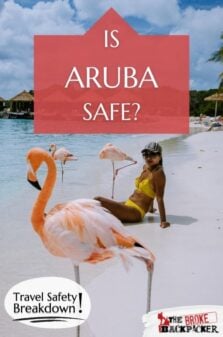The Broke Backpacker is supported by you. Clicking through our links may earn us a small affiliate commission, and that's what allows us to keep producing free content 🙂 Learn more.
Aruba is stunning. Here you’ll find beaches, friendly people, turquoise seas and pastel colonial architecture. This far-flung corner of the Kingdom of the Netherlands is the perfect Caribbean hideaway.
Not everything about Aruba is 100% perfect though. In fact, there’s a fair bit of petty crime in this island country to deal with – unattended bags going missing, hotel rooms getting broken into, and even armed robberies have all actually been known to occur here.
Combined with some pretty merciless nature, you may be at least a little bit worried about a trip to Aruba. Not to worry, this epic insider’s guide to staying safe in Aruba will help you.
Here at The Broke Backpacker, we are all about travelling smart. That doesn’t just mean looking after your belongings and using your common sense whilst out and about; it also means knowing how public transport works, if renting a car is worth it, food safety – and more.
Whether you are a solo female traveller looking for some tailored tips for travelling in Aruba, or if you are thinking about an adventure your family on this tropical island, don’t worry: I have got you covered with this handy guide.

Unlock Our GREATEST Travel Secrets!
Sign up for our newsletter and get the best travel tips delivered right to your inbox.
- How Safe is Aruba?
- Is Aruba Safe to Visit Right Now?
- Join our entrepreneurship retreat in Bali!
- Safest Places in Aruba
- 20 Top Safety Tips for Traveling to Aruba
- Is Aruba safe to travel alone?
- Is Aruba safe for solo female travellers?
- More on Safety in Aruba
- FAQs about Staying Safe in Aruba
- Final thoughts on the safety of Aruba
- Buy Us a Coffee!
How Safe is Aruba?
Aruba is a chilled-out Caribbean island – get ready for beaches, beaches and more beaches.
For the most part, Aruba is safe. It’s actually considered to be one of the safest of all the Caribbean islands.
Having that title doesn’t mean that much; it’s still an island in a region where petty crime – sometimes violent crime – and drug gangs persist. Though relatively low in Aruba, crime still exists.
You have to follow your usual travel safety practices. I would still avoid walking around by yourself at night, especially in secluded areas (but I’ll get into that later).
Nature can pose a threat, too. Though free from the threat of hurricanes, being outside the “hurricane alley”, there are still things that can put you at risk: the land, the Caribbean sea – and the sometimes dangerous critters that live on and in both. The heat can also be troublesome.
Let’s see exactly how safe Aruba is with a deep dive into the country’s statistics.
Staying Safe in Aruba
There is no such thing as a perfect safety guide, and this article is no different. The question of “Is Aruba Safe?” will ALWAYS have a different answer depending on the parties involved. But this article is written for savvy travellers from the perspective of savvy travellers.
The information present in this safety guide was accurate at the time of writing, however, the world is a changeable place, now more than ever. Between the pandemic, ever-worsening cultural division, and a click-hungry media, it can be hard to maintain what is truth and what is sensationalism.
Here, you will find safety knowledge and advice for travelling Aruba. It won’t be down to the wire cutting edge info on the most current events, but it is layered in the expertise of veteran travellers. If you use this guide, do your own research, and practise common sense, you will have a safe trip to Aruba.
If you see any outdated information in this guide, we would really appreciate it if you could reach out in the comments below. We strive to provide the most relevant travel information on the web and always appreciate input from our readers (nicely, please!). Otherwise, thanks for your ear and stay safe!
It’s a wild world out there. But it’s pretty damn special too. 🙂
Is Aruba Safe to Visit Right Now?
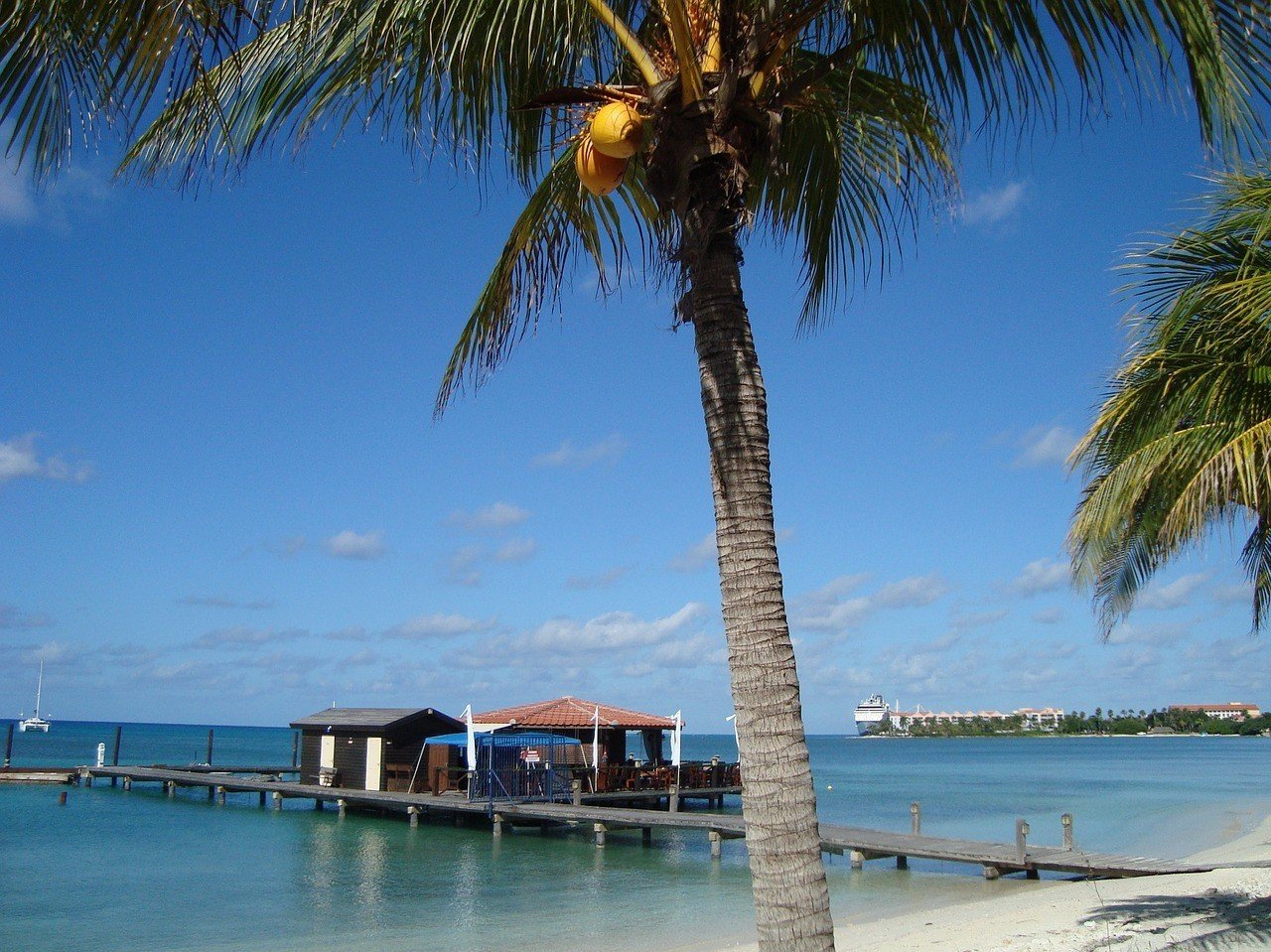
The Broke Backpacker is supported by you. Clicking through our links may earn us a small affiliate commission, and that's what allows us to keep producing free content 🙂 Learn more.
Tourism on the island started in the 1920s under Dutch colonial rule and has been rising steadily since then. Known as an extremely tourist-friendly destination, there are heaps of places to stay in Aruba: Airbnbs, hotel rooms, resorts, as well as plenty of activities.
In 2017 Aruba received around 1.07 million tourists, though down from the previous year, I still think that’s a lot for an island with a population of just over 100,000.
So rapid has the growth in tourism been, however, that the government has decided to issue a moratorium on hotel construction (well, only for a year from late 2018). This is so that the country could focus on other things, like technology and finance.
Tourism is still a huge part of the livelihood of the island. In fact, children are taught to be service-oriented and welcoming.
Clearly, tourists do feel comfortable here: crime is pretty low. A report by the UN deemed Aruba to be one of the safest Caribbean destinations. Violent crime against tourists is very rare. Crime in general, however, is not unheard of.
Aruba is a diverse community; most citizens speak 4 different languages and originate from over 90 different nationalities.
Join our entrepreneurship retreat in Bali!

Ahoy friends, Will here! Introducing a very special project that involves YOU – An 8-day immersive experience in Bali, where I have been living for 7 years now.
If you’re passionate about freedom and designing your dream life, this is your chance to join like-minded folk on the same path and learn from my own wins, losses and lessons over my fifteen years of entrepreneurship, whilst soaking in the best of beautiful Bali.
Expect daily workshops, recharge practices, intention setting and fire ceremonies and perhaps a cheeky game of pool against myself, the one and only undefeated pool legend. All while experiencing the island’s best-kept secrets ?
All in all, Aruba is safe to visit right now – it’s actually one of the best islands to visit in the Caribbean – but there are some things to keep in mind.
Aruba might seem like most to be just a holiday destination, but there are some issues that are facing the issue that could affect your trip.
Firstly, if you’re thinking of hopping on a quick boat or flight to Venezuela from Aruba, think again: Venezuela has closed its borders with Aruba. However, a number of Venezuelan asylum seekers have nevertheless been making their way (illegally) to the island due to the political strife happening in their own country.
Aruba is used as something of a drugs corridor, acting as a middleman between South America, Europe and North America. Because of this, the UK government travel advisory actually warns: “do not leave bags unattended or agree to carry a package for anyone.”
Although there have been no hurricanes in recent years in Aruba, tropical storms do affect the island occasionally; keep an eye on the weather from June to November. Along with that Zika virus is present on the island and it isn’t really advisable to travel here if you’re pregnant.
Safest Places in Aruba
While Aruba is pretty safe on the whole, some neighborhoods are simply better than others. I’ve listed the best (and safest) down below.
Oranjestad
Oranjestad is the capital city of Aruba and as such, you’ll find plenty of hotel rooms and resorts to choose from. It’s also where you will see a large variety of hostels in Aruba. There are a ton of shopping and entertainments centres of the island and many of the stores are upscale and high end. Because it is so touristy, it’s one of the safer areas to stay in.
Eagle Beach
Most people visiting Aruba are looking for a beach holiday. Eagle Beach is one of those beaches you see on postcards and it is lined with resorts, beach hotels and beach houses for rent. It’s one of the most popular beaches to visit in Aruba and is also one of the safest.
Palm Beach
Similarly to Eagle Beach, Palm Beach is another very popular beach resort area. You’ll find high-end hotels and resorts here, mostly in gated communities. If you’re looking for a vacation rental in Aruba, you will find a ton of options here. This is another neighbourhood that is safe to stay in.
Places to avoid in Aruba
Luckily, Aruba is a safe place and most neighbourhoods would be fine to stay in, especially if you are staying in a resort or gated community. However, it would not be a good idea to walk around the back streets of Downtown at night, especially in the area of San Nicolas – this is the ‘red light district’ of Aruba and can have some unfriendly characters at night.
Like most places, crime exists, but that doesn’t make Aruba dangerous, and you should not let your guard down when wandering around at night.
On the whole, though, there isn’t a particular area I would say you need to avoid.
Aruba Travel Insurance
ALWAYS sort out your backpacker insurance before your trip. There’s plenty to choose from in that department, but a good place to start is Safety Wing.
They offer month-to-month payments, no lock-in contracts, and require absolutely no itineraries: that’s the exact kind of insurance long-term travellers and digital nomads need.
SafetyWing is cheap, easy, and admin-free: just sign up lickety-split so you can get back to it!
Click the button below to learn more about SafetyWing’s setup or read our insider review for the full tasty scoop.
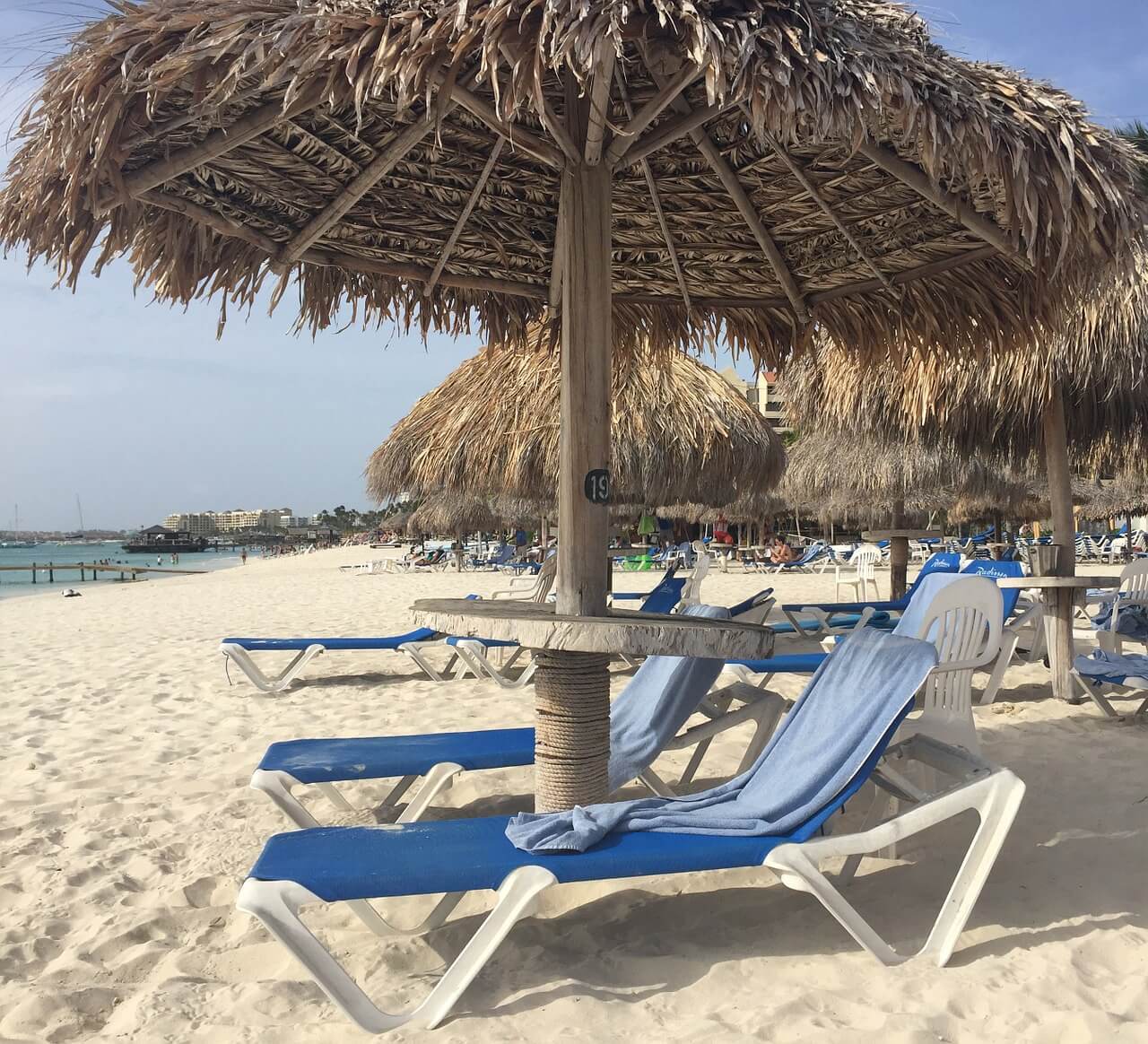
Though Aruba may well be considered one of the safest islands that you can visit in the Caribbean, that doesn’t mean that you can walk around this place without a care in the world like it’s some kind of Caribbean theme park. Real people live here and real stuff happens – and low crime doesn’t mean no crime – so to help you out I’ve got together some of my very best safety tips for travelling to Aruba…
- Make sure you always have ID – it’s Dutch law; a copy of your passport will suffice.
- Drugs are illegal – even though there is a presence on the island steer clear; contributing to this issue is not smart.
- Don’t litter! – you shouldn’t anyway – responsible and sustainable travel is key – but it’s against the law and this law is super enforced. Don’t even drop cigarette butts!
- Make sure your vaccines are all up to date – typhoid and Hepatitis A, for example.
- Take steps to protect yourself from mosquito bites – as I said, the Zika virus is present here, so cover up at dusk and use repellent with DEET.
- If you’re pregnant (or planning to be pregnant) be careful – get professional advice before you go because Zika is dangerous.
- Be careful with your belongings – street crime, though not common, can occur and pickpockets, however small in number, do operate. Hide your money well.
- Don’t walk around the island looking like you’re super-wealthy – it will just attract the wrong sort of attention.
- Watch out for jellyfish – they can get spread around by boats and cause a nasty sting!
- Consider wearing reef shoes – on the beach and in lagoons. Not fashion-forward, but helps against stepping on sea urchins, which hurts: they’re poisonous!
- Keep out of the sea on the northern end of Aruba – windsurfing, even fishing, is not advised and forget swimming. About three different currents meet here and make the Caribbean sea crazy dangerous…
- Be aware of the tide at Baby Beach – it’s shallow, got tropical fish, and is gentle enough. But when the tide comes in there’s a strong current that can make it difficult to get back from the once-shallow sandbars.
- Don’t sit under palm trees – you may want the shade, but you don’t want a coconut falling on you. They can be super dangerous.
- The midday sun is really fierce – cover up, wear a hat, seek shade, use sunscreen, re-apply after swimming, and keep hydrated!
- Keep an eye on your luggage – not only can it go missing, but someone might use you as an unsuspecting drugs mule.
- Don’t leave your belongings unattended on the beach – easy to steal.
- Roaming around remote areas at night – especially alone; it’s not a clever idea at all.
- Learn a bit of the local lingo(s) – there’s Dutch, Spanish, and Papiamento… it’s nice to have a try, at least.
- Get a sim card – even if you’re travelling with an international SIM card, it’ll help you get around and means you’ll be able to keep in touch with people.
So there you have it: those were my safety tips for Aruba. You may not have any issues whilst you’re there at all, but it’s important to be aware of the potential dangers and take basic precautions so that you can then do your best to avoid them. Going into any situation without any background info at all, or without knowing anyways what things to avoid and how to do it, is not smart – so keep my tips in mind on your Aruba trip.
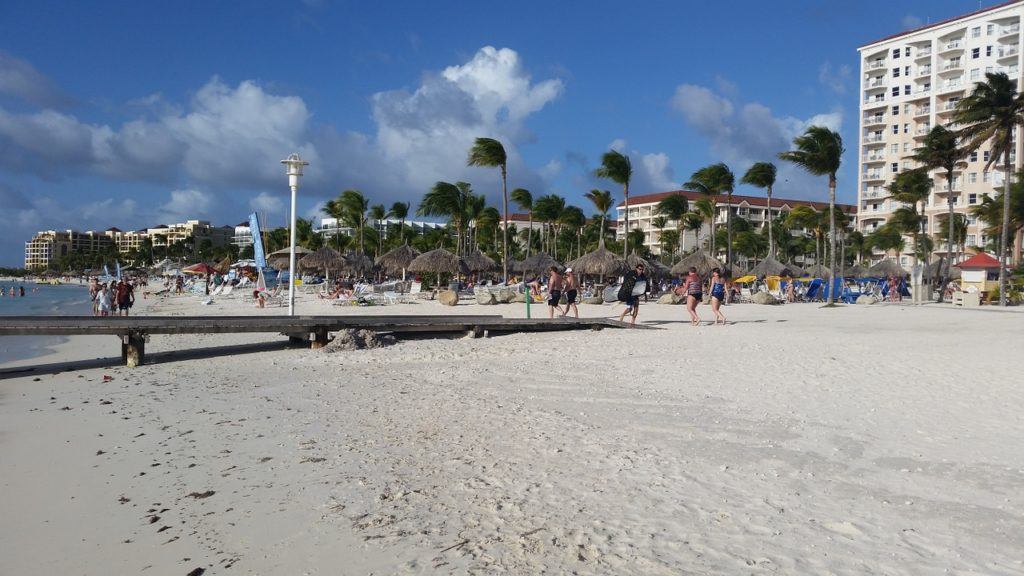
The Broke Backpacker started in the first place as a solo travel project, so obviously, I know all about travelling by yourself – and it’s definitely awesome. You get to challenge yourself and reap the rewards of growing as a person and learning about the world, but it’s important to know how to stay safe on the road.
However, sometimes travelling solo is also super tiring, sometimes it’s boring, sometimes you get jaded, sometimes you feel lonely; and as a solo traveller, sometimes you’re more of a target. Don’t worry: I’ve got a few tips for the solo travellers out there…
- Don’t skimp out on accommodation just to stick to a budget. Aruba is a pretty expensive destination, but staying somewhere very cheap may mean that the accommodation lacks security, is dirty, or is just plain in the middle of nowhere. It’s best to keep yourself safe and opt for something that’s where other tourists are. Many Airbnbs in Aruba come in resort-style gated communities, so make sure to look for this when choosing your accommodation.
- You can always check out some of the cool local guesthouses. There are a few cool hostels in Aruba and some funky guesthouses where travellers congregate. It almost goes without saying but reading reviews from other solo travellers will be the best bet to finding a sweet pad!
- Meeting people is important for your sanity, so I would recommend going on a tour. There are all sorts of tours you can get involved with on Aruba, everything from booze cruises to snorkelling trips. It’s a good way to have fun, learn about the island, and get chatting with some fellow travellers.
- Get yourself to the local market. Here you can marvel at the fresh fish, the fruit and vegetables, see local life unfolding and get chatting with some locals yourself. This makes for a very interesting, very local experience – particularly if you’re travelling solo (which you are).
- If you want to head out hiking or do any other kind of adventurous activity, you really should know your limits. Often it’ll just be you and you alone, with no one to tell you that what you’re about to do looks risky, or that maybe you’ve had enough for the day, especially with Aruba being as hot as it is. Take it easy and know when enough’s enough.
- Head out at night for a couple of drinks and some socialising! You shouldn’t be too worried. Whilst, not a party island, there are still some good nightspots for a drink and dance, if that’s what you feel like. For example, MooMba Beach Bar is a good spot where tourists and locals alike can socialise; Salt & Pepper is also a good option.
- Find yourself a nice area to stay in Aruba. Palm Beach is where you’ll find plenty of beach bars to enjoy, whilst Eagle Beach is a bit more laid-back and a bit less crowded.
- Don’t leave all your important stuff in one place. I’m talking wallet, keys, ID, cash, bank cards. If that one thing goes missing, you lose a whole lot of very valuable stuff at the same time, so I’d recommend that you spread it around. An emergency credit card is also good for emergencies.
- Even though Aruba is a “safe” country not everyone is kind and welcoming. It’s still possible to find yourself in a sketchy area where unsavoury characters lurk, so pay attention to where you’re wandering and trust your gut: if that atmosphere seems weird, remove yourself.
- Make a note of emergency contacts (your hotel, emergency numbers, etc.) and keep them saved at the top of your contacts. In an emergency situation, you won’t want to be scrolling through all the numbers on your phone.
Whilst Aruba doesn’t exactly scream “solo travel destination”, it most definitely can be done. In fact, people travel solo here all the time and have an amazing, trouble-free trip. Knowing your limits though is probably the best thing you can do to stay safe (and sane) on this Caribbean island; that means taking it easy with the sightseeing. You’ll also want to make some friends since the pace of life can be slow!
Is Aruba safe for solo female travellers?
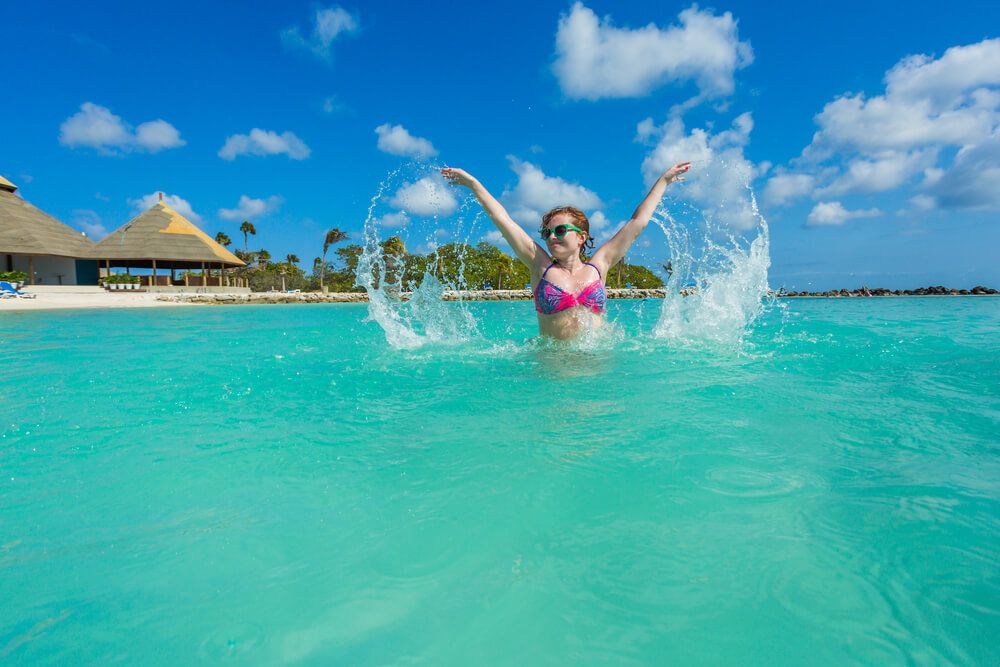
Aruba may be popular with honeymooners and retirees, but this relatively safe Caribbean island is a great place to go as a solo female traveller. It’s not the most exciting island in this part of the world, but it is a super chill place to while away your days with tropical vibes.
For the most part, women travelling alone will be safe in Aruba, but that doesn’t mean that being by yourself is always awesome. To help you have the best time possible (and travel smart as you go) I’ve got together some handy solo female travel safety tips for Aruba…
- Choose accommodation wisely. There are a variety of resorts, hotels and cute, local bed-and-breakfasts. Make sure that you read reviews from other solo female travellers who have stayed before you and go for the most well-reviewed place; of course, it should suit you (and your budget) too. Doors and windows not shutting properly = not good.
- It’s a casual sort of island so I would suggest leaving high heels and anything else glam at home. This kind of stuff is just going to make you stand out more, plus it’s just not needed as it’s not the vibe at all.
- There is a high degree of female-only activities to get involved with on the island. You can book yourself into a whole range of different classes, from golf lessons to wine-tasting – all women-only!
- Don’t be worried about going out by yourself at night. Though some areas of the island are not good to walk around (I’d suggest that you definitely avoid the red light district), many of the touristed resort areas are completely fine to wander at night – even by yourself.
- If you do want to go out, you can head to a fun bar like Senor Frogs. Alternatively, you could just walk around to find a beach bar in Oranjestad (the capital) that looks like your kind of thing.
- Speaking of going out, it is safe to go out and drink – lots of people visiting Aruba do. It’s just important to not go completely crazy and get totally wasted. Being really drunk is a good way to get into a stupid situation or make some bad judgement calls that may lead you to trouble.
- Hiring a car may not be for you, which is totally fine. In that case, you can join a safari tour. This will take you and a small group off the beaten track to places like Arikok National Park for some hiking and swimming.
- Being worried about travelling somewhere by yourself is totally normal – I understand. The good thing for solo female travellers is that you can always plan before you travel and ask for advice on female travel groups. The Facebook group Girls Love Travel is a great place to ask fellow females what sort of stuff they got up to in Aruba; you may even be able to meet a travel buddy whilst you’re there!
- Let people know what you’re up to. The staff at your accommodation, guesthouse or resort buddies you might’ve met by the pool, your friends and family back home – tell people when you’re going out and what you’ve been doing. It’s good to be social and a good way to keep the ‘solo travel blues’ at bay. Remember: solo travelling doesn’t have to mean going off-grid.
- Ask at your accommodation if you need some advice. Could be about where you should be going, what you should be doing, and what areas of the island (or the area you’re staying in) are safe. They’ll most likely know some good spots for you to check out that won’t be in your guidebook.
Being one of the safest islands in the Caribbean, Aruba is going to be totally fine for solo female travellers: you are going to feel pretty safe here. There aren’t drunken nights, or much partying to speak of at all, so if you’re all good to chill, Aruba is the destination for you.
That said, this is one of the sticking points of Aruba: the fact that it’s not very exciting. Unless you are fine to spend time by yourself pretty much the whole time, Aruba could get pretty dull and you could end up getting lonely, which isn’t going to be very fun at all.
Though relaxing by yourself is great (I like it a lot), there does come a point where you wish you could be having a bit more fun. The solution for that is to get yourself on a tour: meet some people, see the sights of the island, and learn about its history and culture.
More on Safety in Aruba
So I’ve covered the main safety concerns already, but there are a few more specific things to know. For more detailed information on how to have a safe trip to Aruba, keep reading.
Is Aruba safe to travel for families?
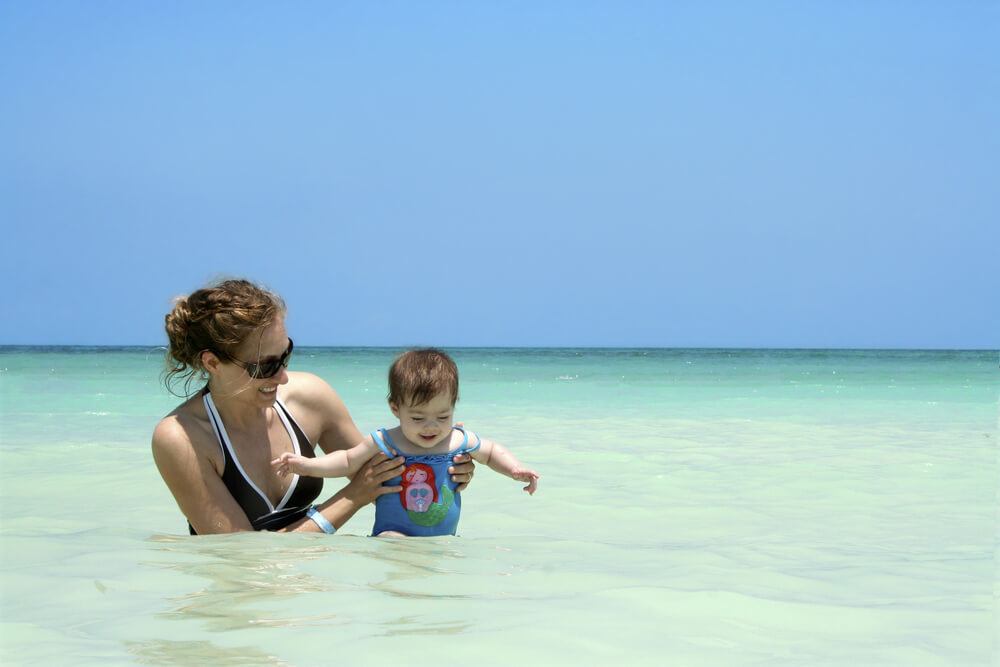
Aruba is a great and safe destination for families. There are a whole lot of resorts, hotels and villas in Aruba that are completely geared towards being family-friendly.
You can even take your kids on a snorkelling trip with Jolly Pirates; enjoy the Philips Animal Garden for some educational time, or take a trip to the island’s heartwarming Donkey Sanctuary. You and your children could also go and explore the amazing landscape of Arikok National Park.
Taking precautions with the sea, however, is a must. Somewhere like Arashi Beach can have a fair few big waves, for example. Most of the West Coast beaches are much more protected from strong surf than other beaches see. Also, undercurrents are still present in pretty much all the Caribbean sea around Aruba and can be dangerous.
Then there’s the sun. Children are more susceptible to being harmed by overexposure to sunlight and heat, so sunhats, sunscreen and limiting the amount of time they spend in the sun at midday are all very important.
Mosquitoes are a danger, too. Not only do the mosquitoes here carry Zika virus, but they also can transmit Dengue fever so make sure you keep the mosquitoes away. If you are a pregnant woman, you should ask for professional advice on visiting Aruba.
Though Aruba is family-friendly, some of the accommodation on the island is strictly adults-only. Do thorough research before you book your accommodation to ensure that it is ok for you and your children to stay.
The family-friendly hotels are awesome though. These come complete with kids’ clubs, babysitting services and family rooms that have kitchenettes so you can fix up early breakfasts, snacks and lunchboxes.
At the end of the day, Aruba is basically a resort island. If you travel here with your family you’re going to be safe and have an amazing time.
Is it safe to drive in Aruba?
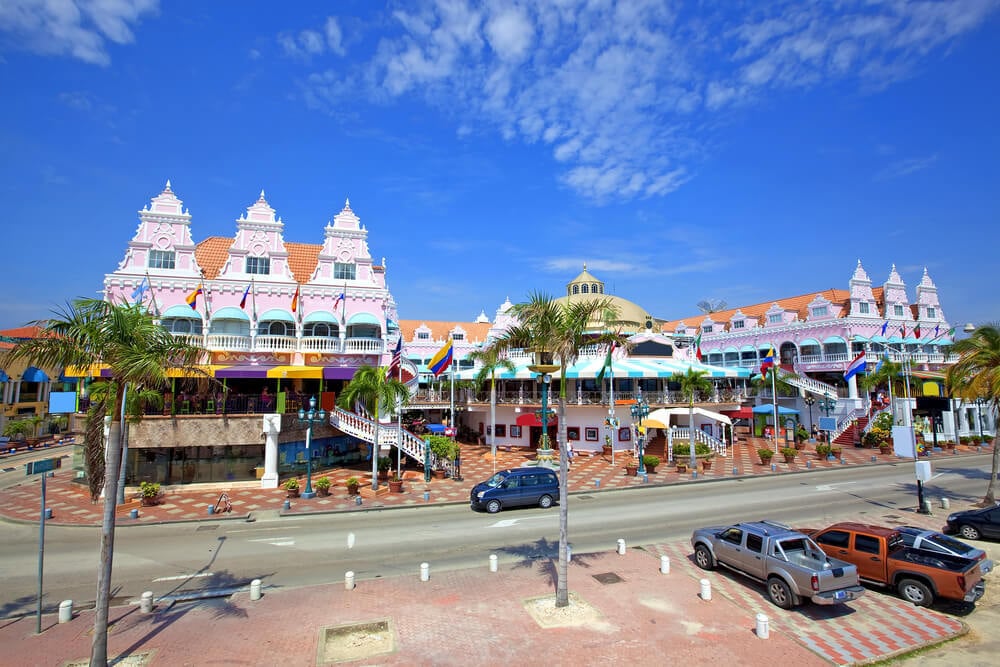
Surprisingly for a Caribbean country, it’s actually quite ok to drive in Aruba. A lot of people do end up renting their own wheels to get around the island and have a little adventure – and you might want to as well!
A lot of people book their car and their car rental insurance before they arrive on the island. This both ensures that it’s cheaper and that you’re not left disappointed with no car when you arrive.
That said, you can also rent a car at the international airport as well.
It’s not just regular cars you can rent. Visitors to Aruba can also get their hands on jeeps, scooters, and motorbikes to get around the island.
Driving conditions are pretty good in Aruba and driving will mean you have that much more independence to see the island at your own leisure. There are some things to keep in mind, however…
- In Aruba, you drive on the right-hand side of the road.
- You must wear a helmet if you’re on a motorbike.
- Whilst main roads are usually pretty good, locals may sometimes do things like ignore traffic signals
- Road conditions in Arikok National Park can be much more rough and bumpy
- Be careful if it’s been raining as the roads can get very slippy
- Tourist rental cars have a ‘V’ at the start of their number plate; people will know you’re a tourist
If you’re not confident at driving in a foreign country at all, I wouldn’t say that driving in Aruba is out of the question; just take it slowly and go at your own pace.
However, it is important to remember never to leave anything on show in your car. As I said, you can see if a car is a tourist rental and practically anything on show will tempt opportunist thieves, especially in urban areas.
For the most part, however, driving in Aruba is safe (surprisingly) – a lot of visitors do use this as an option to get around.
Is Uber safe in Aruba?
Unfortunately, there is no Uber in Aruba – even though it sounds really good to say.
Maybe there will be an Uber on this island one day, but for now, you’ll have to rely on taxis and public transport.
Speaking of which…
Are taxis safe in Aruba?
Because they’re well regulated by the government, taxis in Aruba are pretty safe and quite reliable and as a result, they’re often used by tourists. You’ll most likely end up using a taxi at least once during your trip.
First things first: when you use a taxi, make sure it’s a registered taxi. How can you tell? The cars have a “TAXI” sign on the top and the name of the company on the side.
There are three ways you can get a cab in Aruba, basically: you can flag down a taxi on the street, head to a resort to find a waiting cab, or call ahead and book one in advance.
It’s important to note that taxis in Aruba do not have meters. This means that you will have to confirm the fare before you ride; these are set for certain distances and destinations. From the international airport to resorts, for example, it’s a certain amount (and then more on top depending on where you’re actually going).
There are also additional costs to be aware of. On Sundays, national holidays and between 11 PM and 7 AM there’s an extra $3 surcharge; you’re also only allowed one piece of luggage – you’ll be charged an extra $2 for each additional bag.
You shouldn’t worry too much about the taxis trying to swindle you because the fares are set by the government, but just so you know: prices are per taxi not per person and the drivers won’t accept $50 or $100 bills.
If you want to see some sights, you can even hire the cabs for an hourly rate.
Basically, the taxi drivers in Aruba won’t really mess you around. They’re well regulated and very used to tourists – and they’re everywhere.
The downside? They can get a bit expensive after a while.
Is public transportation in Aruba safe?
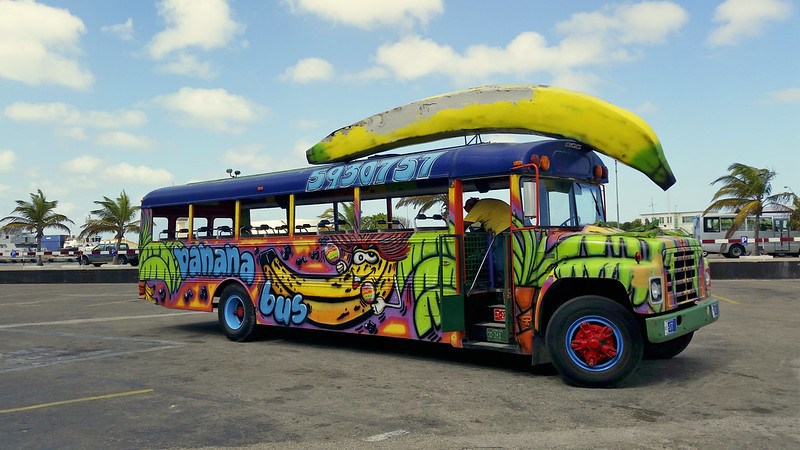
Photo: Boris Kasimov (Flickr)
If you don’t want to catch cabs all the time in Aruba, don’t worry: there are buses.
Called Arubus the bus service operates a network of routes across the island. Connecting the international airport and all the hotels in the resort areas with other places like Malmok Beach, Arashi Beach and Fisherman Huts, they run every 10-15 minutes and are fairly inexpensive; expect to be paying around $2 return.
Find the main bus station in downtown Oranjestad, just by the waterfront shops. From here you can get anywhere on the island.
It used to be only locals who used the bus service, but recently more and more tourists have figured out that it’s a safe and easy way to get around the island. The bus service does stop at 9 PM so make sure you don’t miss your last bus.
Don’t worry too much about trying to find your stop, or knowing the right bus to get on; Arubans are so friendly that they’ll usually be able to help out, either by telling you when to get off or just giving you a hand working out what route you should be taking.
However, you can get to grips with bus routes and plan your day trips on Arubus.com, where you’ll find everything from fares to a route planner.
Though limited to buses only, the public transport in Aruba is not only safe – it’s surprisingly convenient and comprehensive, too. Of course, there are also boats but they don’t work so much as public transport, being used mainly for private tours and excursions.
Is the food in Aruba safe?
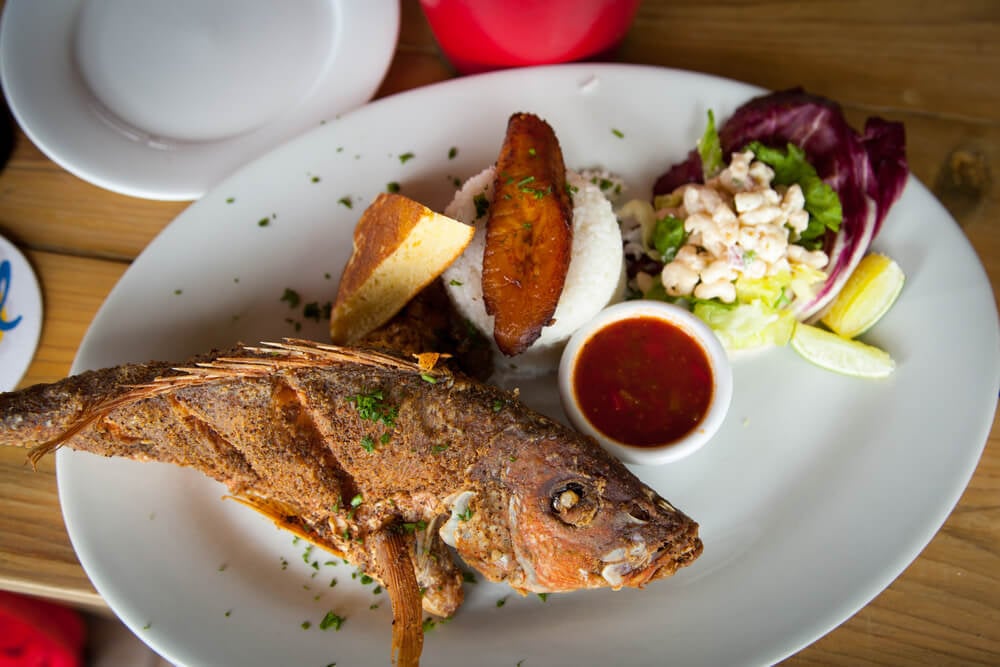
You probably don’t know what to expect when it comes to Aruban cuisine, but if you want to eat your way around the island it’s certainly safe to do so! There are over 250 tasty eateries to try out, as well as some of the world’s most scrumptious street food serving up delights you’ve never heard of.
Eating on the waterfront, on beaches, or even in the malls, is the way to go on this island nation. You can get involved with everything from Belgian and Japanese cuisine all the way to Mediterranean dishes and American favourites. Here’s how to do it safely…
- A lot of the restaurants on Aruba will serve up seafood. When done well, seafood is amazing, what can I say? But if it’s not fresh and it’s not done well, then seafood can really play havoc with your stomach. Food poisoning from seafood is not fun at all and can actually be dangerous; if it tastes funny, stop eating!
- For somewhere you can trust for great seafood and fish dishes, head to Hadicurari on Fisherman’s Pier, Palm Beach. This is the sort of place that you’ll want to return again and again.
- Eating out in the restaurants in Aruba, however, can get pretty pricey. If you are on a budget, then I would recommend hitting up some of the markets and street food stalls. Don’t be afraid to try them. You should head to places that long queues or crowds of people around them; is a sure sign that the food is good and probably pretty well done.
- For another good sign, opt for street food that is being cooked fresh and hot before your very eyes! Stuff that is pre-cooked has a tendency to be not so good because it’s sitting around all day before being sold, picking up all sorts of germs and going bad.
- Something you may want to try is the pinchos. These meat skewers are devilishly delicious and often you can see them being cooked in open-air kitchens, so you know it’s up to scratch. A particularly good place to try these out is Pinchos Grill & Bar in Oranjestad.
- Picky eaters really don’t have to worry in Aruba: there’s honestly something for everyone here. I’m talking burgers, pasta, sandwiches, salads, all that international sort of stuff.
- To be on the safe side, though fresh fruit and salads are usually fine, you might want to avoid them. Since they haven’t been cooked, any germs on whoever’s hands made or washed them won’t have been killed by heat. If you’ve got a sensitive stomach, I’d advise you to avoid these.
- If you’ve got your own kitchen or kitchenette, head to the market! Pick up fruit and vegetables, go home and wash it yourself, cook it yourself and have a budget-friendly, very tasty time in your own accommodation.
- Be careful when it comes to hotel buffets. Whilst I love ’em, these can be a real source of getting a bad tummy whilst on holiday. The solution? Head to the buffet at the right time. If lunch starts at 1 pm, go to lunch at 1 pm! This way you will get the freshly cooked stuff and not the items that have been sitting around for a few hours in the afternoon heat.
- Wash your hands! You don’t know how dirty your hands are until you scrub them with soap and see what colour the water turns. Especially if you’re going to be eating with your hands, give those hands a wash before you eat.
So that was that: some foodie tips for eating your way around all the delicious delights of Aruba like an absolute pro. For the most part, food hygiene levels are pretty good throughout Aruba, however, you can get food poisoning anywhere in the world, so choose wisely.
If you’ve got a sensitive stomach, steer clear of things that you know give you a bit of trouble. To be best prepared for food and drink when abroad, it’s probably a good idea for you to bring anti-diarrhoea medication and rehydration tablets… you know, just in case.
Can you drink the water in Aruba?
You may be thinking that the water here may not be up to scratch, being in the Caribbean and all, but you’d be wrong! The water is totally safe to drink in Aruba.
Save on plastic and don’t buy bottled water: bring a refillable water bottle and fill up before you hit the beach – if you can drink the water in Aruba, then why not?
Keeping your money safe in Aruba
Anywhere in the world, the number one issue for any traveller is always going to be losing your money. Suddenly finding yourself with no money can mean no accommodation, no food, and even cutting a trip short.
Nobody wants to have money stolen whilst they’re trying to explore the world, right? You need money to do that – especially in Aruba. Luckily for you, we have the perfect solution to keep your cash secure: a travel money belt.
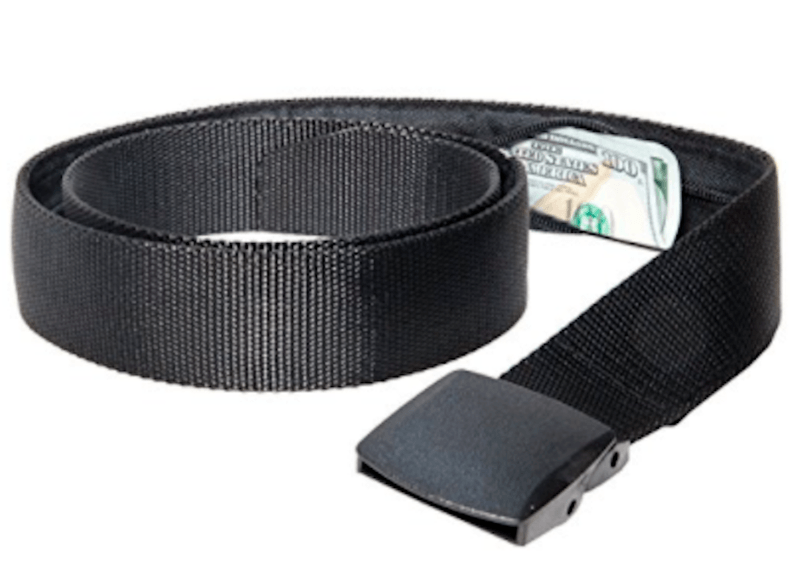
There are actually quite a few choices out there when it comes to money belts, but we think they’re way too fussy. Not only that, but a lot of the time they’re bulky, look obvious under your clothes, and honestly aren’t the most comfortable things to wear.
The Pacsafe Money Belt is the best bet. It’s affordable, it looks and acts like a belt, and it’s sturdy – what more could you ask for out of a money belt!
This belt is the king of money belts. Not only does it look like a regular belt (so you can use it like one, too), but it’s also super simple: it’s got one zip pocket where you can stash your cash away. That means you’ll be able to keep your money safe in Aruba very easily; even if you lose your wallet, or maybe your stuff goes missing somehow, you’ll always have your money belt stash to fall back on.
If you need a little more room for your passport and other travel valuables, have a look at a full-size money belt that tucks under your clothes instead.
Is Aruba safe to live?
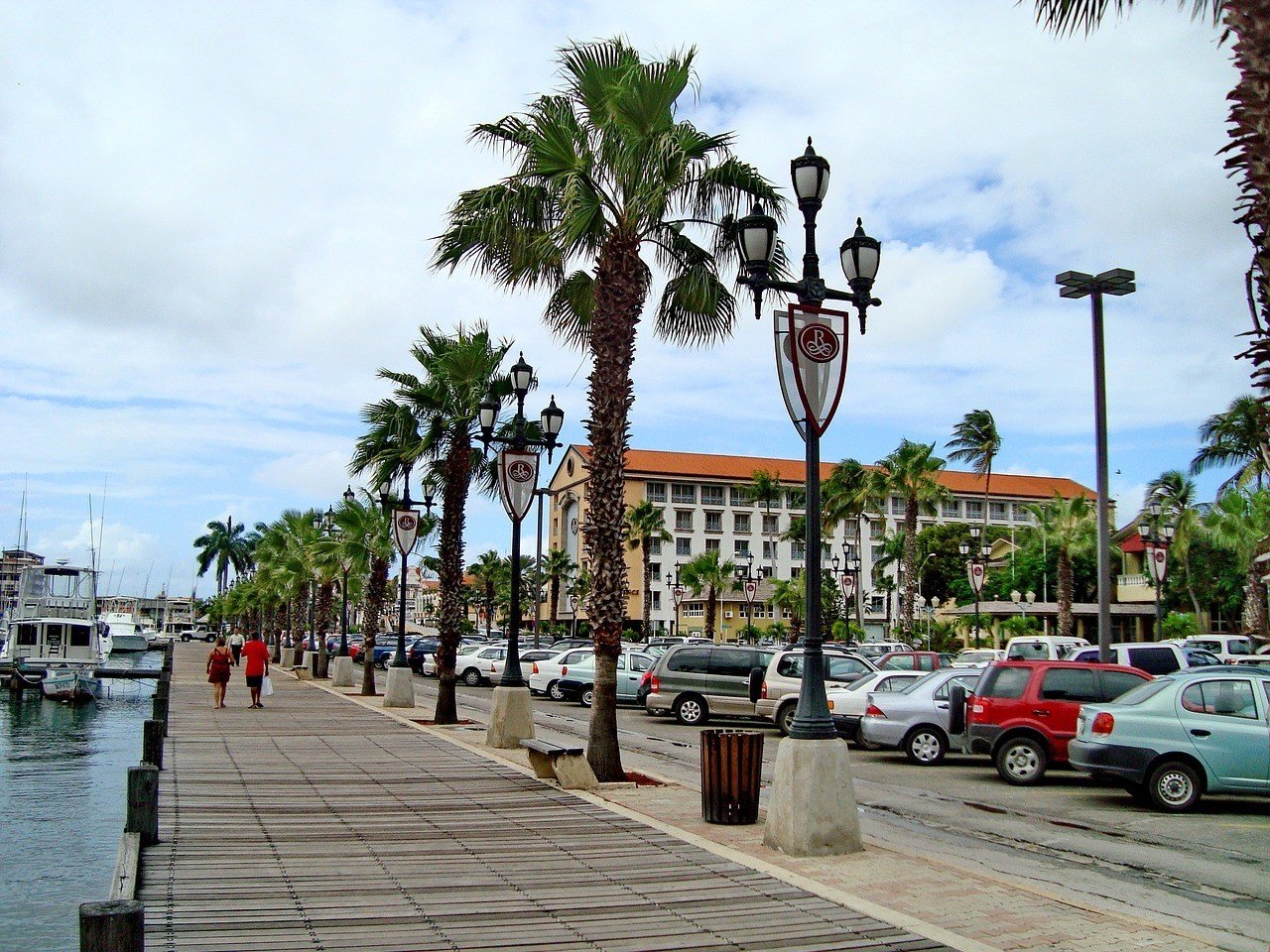
Living on a Caribbean island is a pretty crazy dream, but it can be done – especially in the relative safety of Aruba.
Unlike what you may be thinking, Aruba is a modern country. Compared to many other Caribbean islands and being part of the Netherlands, Aruba is much more developed and a lot more wealthy. There are plenty of vacation rentals in Aruba and many other tourist accommodations.
For those that aren’t fans of Airbnbs and hotel rooms, I’ve got a third option for you. Check out the amazing VRBO’s in Aruba – it’s luxury for a very affordable price!
The population of Aruba has actually been skyrocketing recently due to a lot of ex-pats figuring out that it’s a pretty cool place to live. Arubans are friendly, meaning there’s not a lot of friction between the citizens and the newly arrived ex-pats. In fact, Aruba is a pretty mixed upcountry when it comes to ethnicity.
The thing about Aruba is that it is based on tourism. The government may be trying to curb this, but a lot of the establishments, eateries and entertainment options are geared towards tourists and can, therefore, be very expensive for everyday living.
Also, Aruba is a very small island, so the choice is limited to what you can actually buy on the island, not just in terms of fruit but also with things like furniture and electrical goods. Petrol for your car (or motorbike) is very expensive, for example.
Though tropical storms can be a threat, you won’t have to worry too much as Aruba is out of the way of hurricanes and other storms tend not to hit the island as badly as in other parts of the Caribbean (like St. Lucia for example).
If you like beaches or hanging out in malls, life is pretty chill in Aruba. However, if you are expecting a lot of culture, cafes or bookshops and you’re prone to being bored or getting restless, then you may be disappointed.
It is safe to live in Aruba though.

A new country, a new contract, a new piece of plastic – booooring. Instead, buy an eSIM!
Jetpac eSIMs work just like an app: you download it, pick your plan, and BOOM! You’re connected the minute you land. It’s that easy.
Read about how e-Sims work or click below to see one of the top eSIM providers on the market and ditch the plastic.
Grab an eSIM!How is healthcare in Aruba?
When it comes to healthcare in Aruba there is a fairly good standard of healthcare and medical care available – especially given the size of the island.
Aruba, however, does not have great emergency facilities. In an emergency, you’ll have to be airlifted to somewhere with appropriate facilities, somewhere like the fellow Dutch country of Curaçao.
Want to discover Curacao? Lucky you, I’ve got a hot guide to where to stay, just for you!
Aruba itself has two large medical centres: Dr. Horacio Oduber Hospital, which is located near the low-rise resorts and does provide some level of emergency care; the other is ImSan Medical Institute. Both of these hospitals can treat a whole selection of different problems and have helicopters on standby in case you do need to be taken elsewhere.
It’s important to note that health insurance may not be accepted in certain medical facilities on the island, so you might want to check before you go to a hospital that you’re covered for treatment.
If you just need to get your hands on some medication there are many pharmacies on the island; these are called botica. There will be at least one pharmacy open at all times. You will be able to get a lot of different things over the counter, as well as first aid kits type stuff like plasters and bandages.
Pharmacies will also be able to help you find a doctor, who will be able to diagnose any minor ailment you have and write you a prescription.
Ask about your accommodation for the nearest clinics and pharmacies – they’ll be able to point you in the right direction.
Is it safe to rent an Airbnb in Aruba?
Yes, Airbnb is totally safe in Aruba. You mainly find villas, beach houses and condominiums on Airbnb in Aruba, which are usually set in gated communities or on resorts, so it is just as safe as staying in a hotel.
Guests don’t have anything to worry about as they are fully protected through the booking platform. So as a guest, renting an Airbnb is very safe!
Is Aruba LGBTQ+ friendly?
Aruba is one of the safest Caribbean islands for LGBTQ+ travellers. In fact, some hotels and resorts cater to LGBT clientele or advertise themselves as “LGBT-friendly”. You’ll find gay bars and several specific gay clubs, especially in the capital city of Oranjestad.
FAQs about Staying Safe in Aruba
Here are some quick answers to common questions about safety in Aruba.
Final thoughts on the safety of Aruba
Aruba, like all good islands, has a slogan – and that slogan is ‘One Happy Island’. Being in the Caribbean, but with many of the benefits of being a constituent country of the Kingdom of the Netherlands, no wonder it’s a happy place. I’ve said this a lot of times throughout this epic safety guide, but it really is one of the safest islands in the Caribbean.
Being north of Venezuela, you might have thought that the closeness to this not-so-safe country would have automatically made Aruba an unsafe place. I get the logic, but that’s not the case at all. The most you’re going to have to contend with here is a little bit of petty crime – and even then, crime levels are low. Room break-ins, armed robberies, bags going missing – this all happens, but not very often!
As I always say, however, it’s all about smart travel. A country may be safe, but it’s very easy to make somewhere unsafe for yourself. Something as simple as not being prepared for a day at the beach could end up in heatstroke, for example; swimming too far out could mean you get swept away by a current; you could tread on a sea urchin. There are dangerous things – but they’re easily avoided. You’ll be fine!
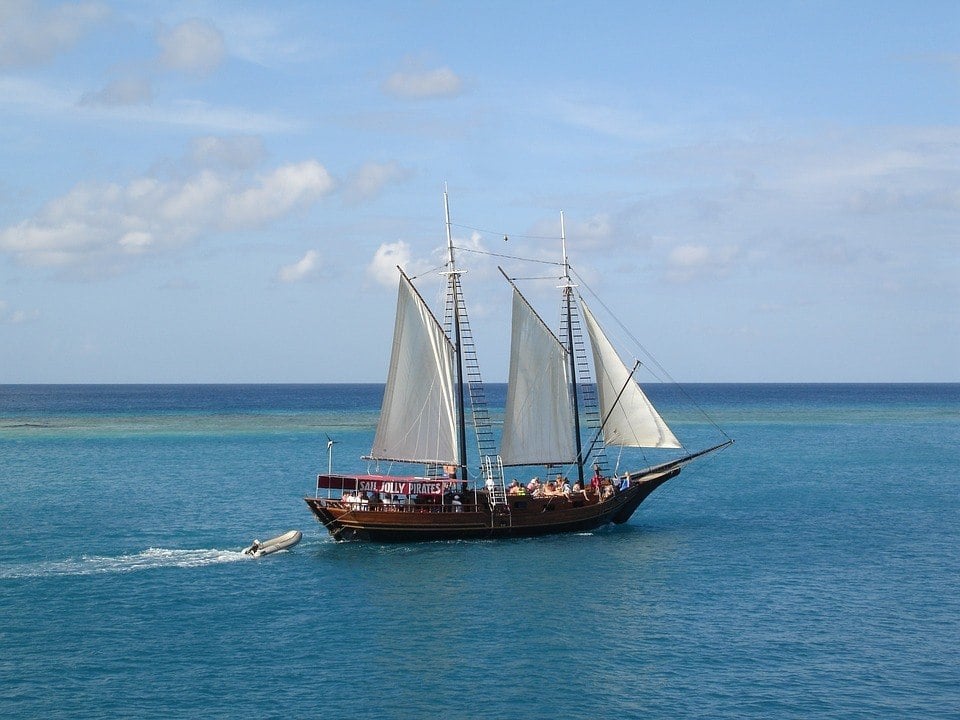
Disclaimer: Safety conditions change all over the world on a daily basis. We do our best to advise but this info may already be out of date. Do your own research. Enjoy your travels!
Buy Us a Coffee!
A couple of you lovely readers suggested we set up a tip jar for direct support as an alternative to booking through our links, since we’ve decided to keep the site ad-free. So here it is!
You can now buy The Broke Backpacker a coffee. If you like and use our content to plan your trips, it’s a much appreciated way to show appreciation 🙂


